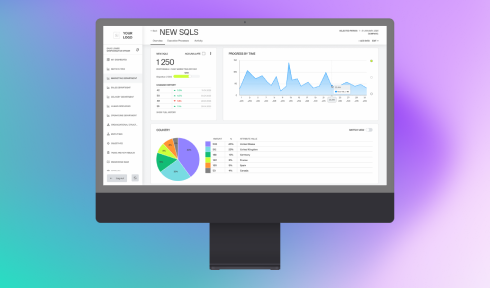The First and Foremost Rule of Any Innovation
Introducing new tools and technologies is crucial for a company’s growth. However, to ensure employees utilize these tools, it’s essential to convey their importance and explain the benefits they will receive.
For instance, performance evaluation metrics can tackle the issue of underappreciation. Many companies have employees whose work is challenging to evaluate since their labor doesn’t fit the notion of a “produced product.” In such cases, metrics can assess their contribution and enhance their professional motivation.
Using metrics also allows for feedback from colleagues and management. Summarizing the results makes the work outcome clear to everyone within the team or company.
At Computools, educating employees about new tools and metrics’ significance is essential. They can be a key factor in the company’s growth and help employees become more productive and efficient. Otherwise, the company risks employees not using or misusing them, resulting in ineffective performance evaluations. Incorrect metrics usage can distort real results and lead to false conclusions about the company’s or employee’s performance, requiring strict oversight.
Measuring Challenging Employee Functions
It can be difficult to measure the work of employees who perform various functions and tasks not directly related to creating a project. At Computools, several methods are used to evaluate their performance and determine their contribution to the company’s success.
Checklists
Checklists are a method for measuring an employee’s KPIs (key performance indicators), containing predefined criteria and standards for evaluating task performance and goal achievement.
Advantages of this technique include:
1. Checklists offer a unified and objective standard for assessing employee performance, especially in complex, multi-step processes.
2. They provide clear feedback on job performance, allowing employees to understand how to improve in the future.
3. They are easy to use and applicable to many types of work.
However, there are also disadvantages:
1. Checklists may not consider an employee’s job specifics or their work context, potentially resulting in an unfair performance assessment.
2. They can be too rigid and may not account for changes in an employee’s role, leading to outdated and inaccurate evaluations.
3. Their usage might cause employees to focus solely on completing checklist tasks, neglecting other work aspects and reducing motivation.
It’s crucial to consider these points and remember that checklists are just one way to measure employee KPIs. This method can be combined with others.
Story Points
The Story Point metric, a tool within the Agile methodology, measures the complexity of tasks a project team must tackle. It doesn’t track the time spent on a task but determines the task’s difficulty and the effort required to complete it. This metric can be based on assessing workload scope, complexity, risks, and other factors affecting the task. It helps teams plan their work, predict task timing, and minimize project risks.
Benefits of this methodology for Computools:
1. It allows teams to flexibly assess task complexity and adapt to project changes.
2. By using the Story Point metric, the focus shifts to task complexity rather than completion time.
3. Teams gain a deeper understanding of tasks and a clearer vision of which tasks are more complex and require more resources.
Disadvantages:
1. The Story Point metric may not be accurate, as it relies on the team’s experience and intuition.
2. Different team members might give varying estimates, causing resource allocation issues.
3. Estimating tasks using the Story Point metric can be challenging for teams new to Agile and requires practice and experience.
Common Mistakes and Tips for Implementing KPI Metrics
One primary error is selecting metrics that don’t accurately represent an employee’s or company’s true performance. For example, if a company only measures sales numbers, it may lead to employees focusing on increasing sales without considering product quality or customer service.
When implementing metrics and evaluating KPIs, frequent feedback is crucial so that employees understand how their work impacts company results. A lack of feedback can result in employees being unsure of the changes needed to improve outcomes.
Measuring too many metrics can confuse employees, making them unsure of which ones to focus on and decreasing motivation. KPIs should be specific, measurable, and achievable. It’s not enough to state that an employee should increase certain indicators; instead, specify the target improvement amount and the time frame for achieving it. For maximum effectiveness, involve employees in selecting metrics and formulating KPIs. They can offer valuable insights to help choose the right metrics and develop achievable goals.
Related Experience

Metrics serve as essential tools for identifying and addressing a company’s weaknesses. When specific processes or an individual’s work raises questions, metrics can help pinpoint the causes. Moreover, metrics can assist in monitoring and enhancing processes, leading to increased productivity and improved work quality. However, keep in mind that metrics can be inaccurate or may not account for certain factors, so use them cautiously and in combination with other performance measurement methods.
Ready to implement effective digital strategies? Contact us at info@computools.com to learn how our expertise can help your company grow.
Computools
Software Solutions
Computools is a digital consulting and software development company that delivers innovative solutions to help businesses unlock tomorrow.









“Computools was selected through an RFP process. They were shortlisted and selected from between 5 other suppliers. Computools has worked thoroughly and timely to solve all security issues and launch as agreed. Their expertise is impressive.”